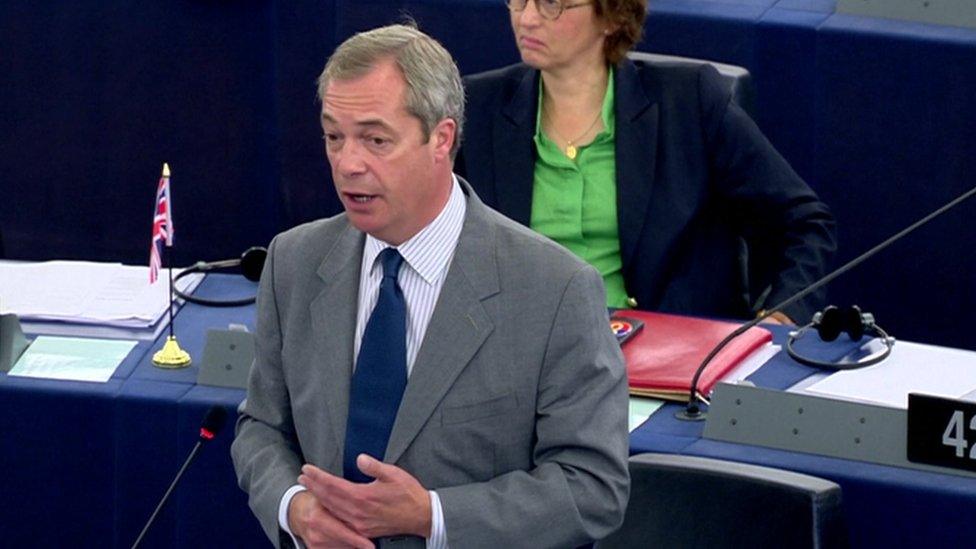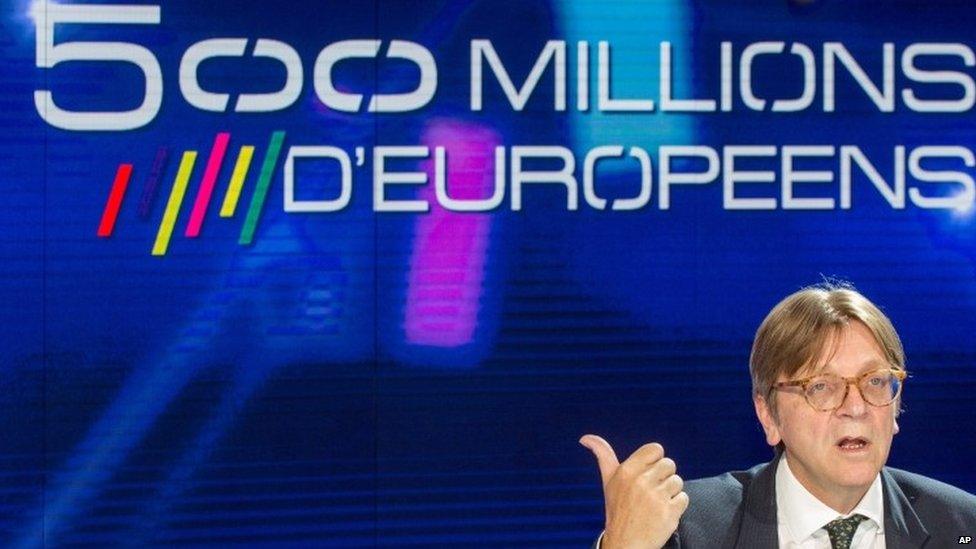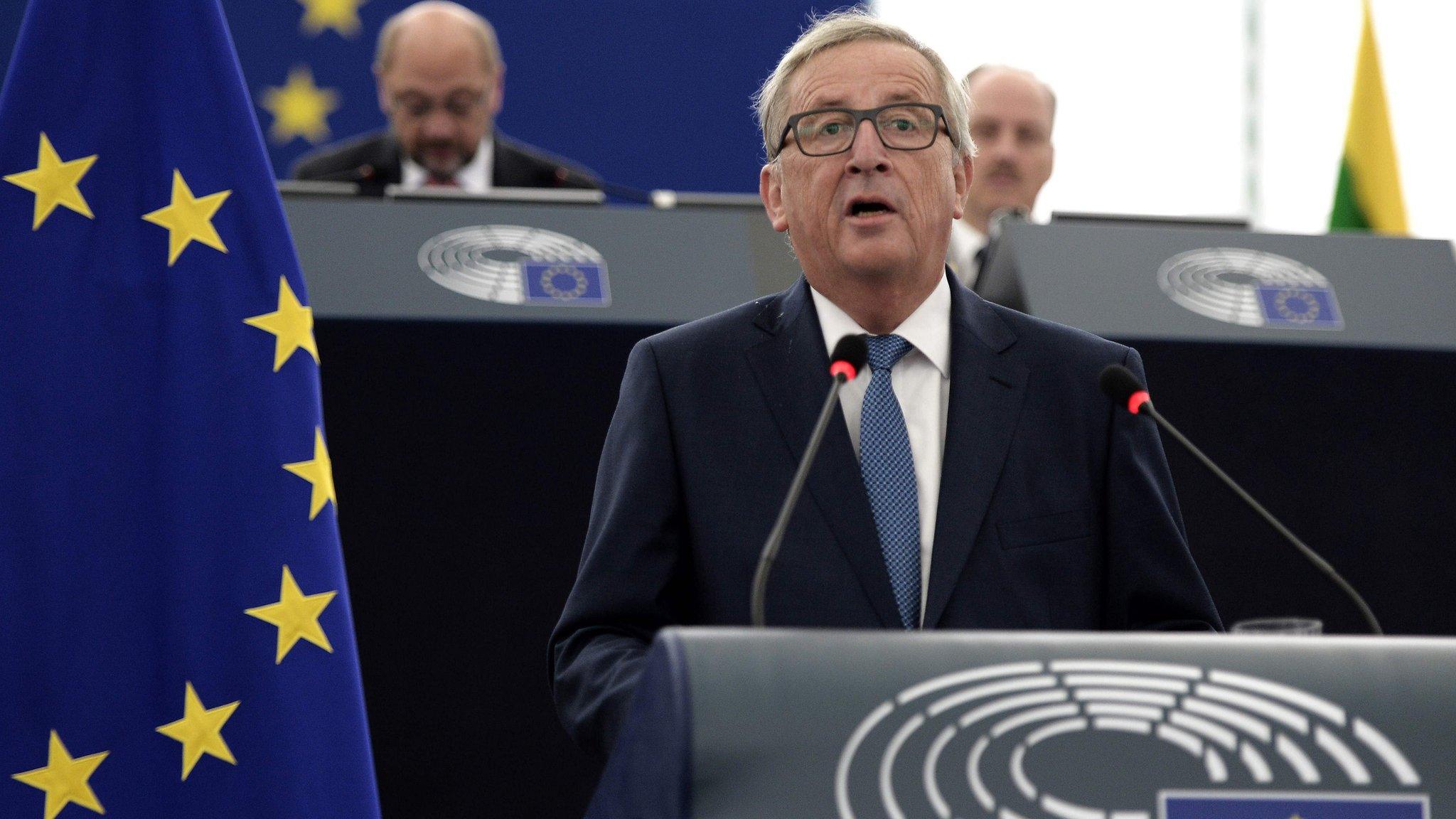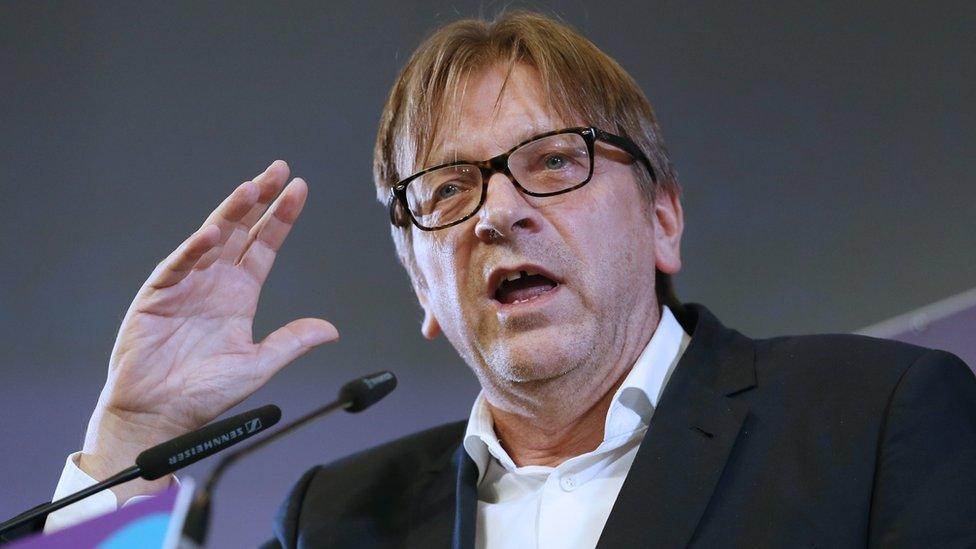Nigel Farage: EU Parliament 'declaring war' on Brexit talks
- Published

Mr Farage is remaining as an MEP despite standing down as UKIP leader
Nigel Farage has accused the European Parliament of "a declaration of war" on the UK's Brexit talks after naming Guy Verhofstadt as its chief negotiator.
The outgoing UKIP leader told MEPs the ex-Belgian prime minister was the "high priest" of federalism and should be replaced by someone "who likes the UK".
Mr Verhofstadt is one of three officials chosen by EU institutions.
He told MEPs earlier he didn't want to "punish" the UK but to build "sound relations" after the UK's departure.
Although the Belgian politician, who leads the Alliance of Liberal and Democrats grouping in the European Parliament, will not actually lead the EU's talks with the UK, the European Parliament has said he will have a "central role" in discussions expected to last at least two years.
The European Parliament's approval is required before any settlement is agreed with the UK.
'High priest'
Mr Farage, who will officially step down as UKIP leader on Friday but remain as an MEP, criticised the appointment during a debate in Strasbourg, saying it showed the EU had not "learnt any lessons" from the UK's rejection of its membership.
"If you think of this building as a temple, then Mr Verhofstadt is the high priest," he said.

Mr Verhofstadt says the European Parliament must have a crucial role in the Brexit talks
Responding to Mr Verhofstadt's statement earlier in the session that the EU was the "counterweight" to growing nationalism on the continent, Mr Farage said his fellow MEP was the "only real nationalist in the room" because he supported the EU having its own "flags, anthems and armies".
He added: "I frankly think this appointment pretty much amounts to a declaration of war on any sensible negotiating process.
"I think what we really need is for this Parliament to recognise it has made a mistake and find someone who actually likes the UK to lead these talks."
Mr Farage also urged UK PM Theresa May to get on with the process of the UK leaving the EU. She has ruled out official talks until the start of next year at the earliest.
Brexit opportunity
Mr Verhofstadt, who was given the role of negotiator by the leaders of the main party blocs in the parliament, said he was not out for revenge against the UK and called for an end to what he said had been the "collective depression on both sides of the channel" after June's Brexit vote.
"Brexit is not a liability," he said. "I see it more as an opportunity...The British government wants to make from Brexit a success. Fair enough; it's their duty.
"But we have also our duty. And our duty, our responsibility is to make from Brexit a success for Europe, for all the citizens of Europe.
"Brexit is not a matter of punishment. It's not a matter of revenge... It's in my opinion a question of the sound relations between Britain and Europe."
Backing the European Commission's plans for a "common military force" - outlined earlier by its President Jean-Claude Juncker - he said the solution to the rise of Euroscepticism was "not to kill Europe but to reinvent Europe".
Europe's other top Brexit negotiators will be Belgian Didier Seeuws and French finance expert and former EU Commissioner Michel Barnier, representing the European Council and European Commission respectively.
On Wednesday, the European Commission said it would set up a new "task force" manage negotiations with the UK once it invokes Article 50 and begins the formal process of leaving the EU - led by Mr Barnier.
Also speaking in Wednesday's debate, Syed Kamall - who heads the group of Conservative MEPs in the European Parliament - said the EU had to heed the "warning signals" flagged up by the Brexit vote by heading in a radically different direction.
"The more you propagate EU supra-nationalism, the more nationalism has arisen in our member states. The more you ignore or condemn scepticism, the more likely the prospect of a President Le Pen or Prime Minister Wilders."
- Published12 September 2016

- Published14 September 2016

- Published8 September 2016
